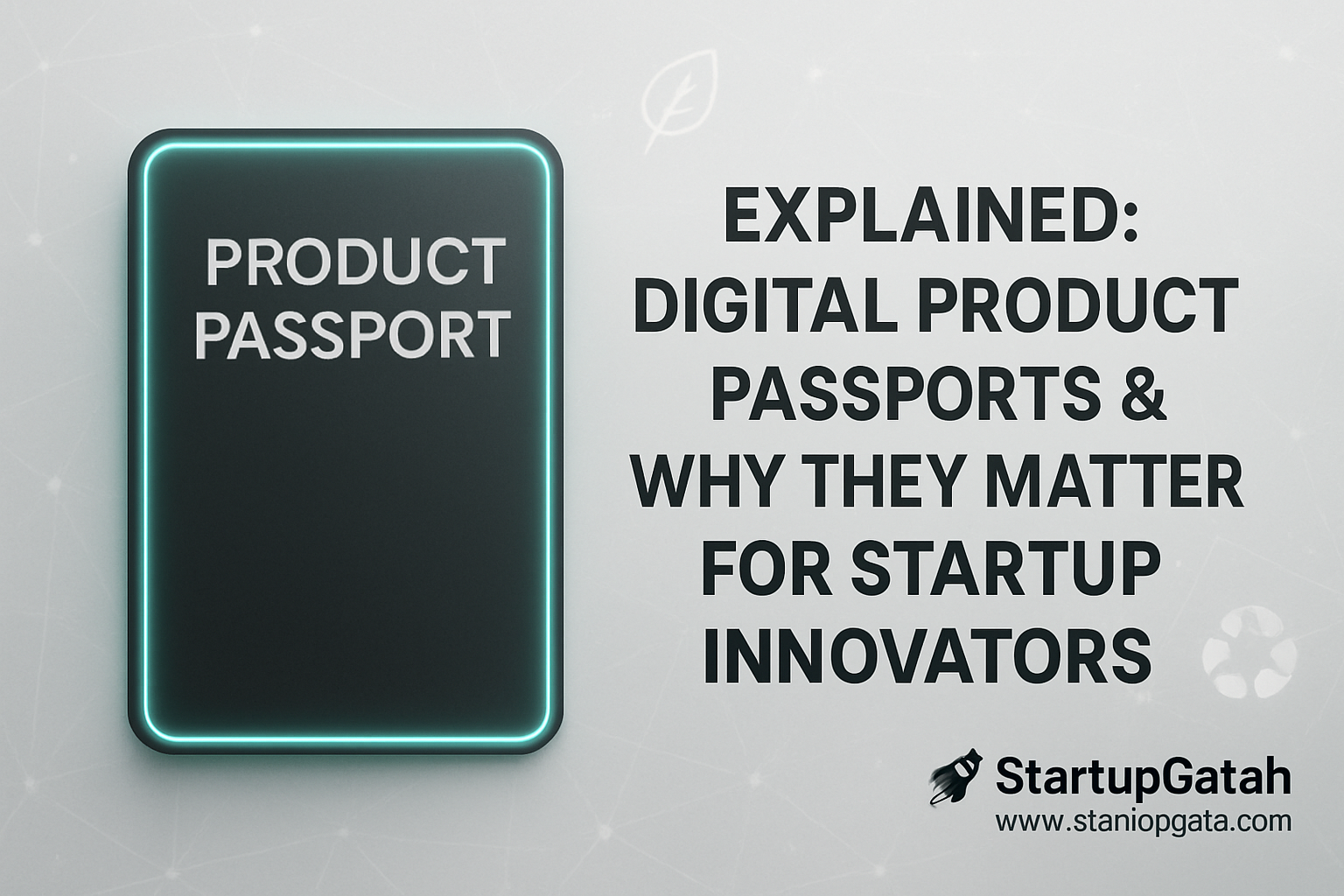What is a Digital Product Passport (DPP)?
A Digital Product Passport (DPP) is a digital record containing detailed information about a product’s materials, origin, manufacturing processes, repair history, and environmental impact. Accessible via a QR code or NFC tag, it enables anyone—from consumers to regulators—to verify a product’s lifecycle and authenticity instantly.
Why Are Digital Product Passports Trending?
Key Drivers
-
Sustainability Demands: Consumers and governments increasingly demand transparency regarding product sourcing and environmental impact.
-
EU Regulations: The European Union is mandating DPPs for certain sectors, including electronics, batteries, and textiles, starting as early as 2026.
-
Counterfeit Protection: DPPs make products harder to fake, protecting both brands and consumers.
-
Circular Economy Push: They promote repair, reuse, and recycling by providing access to materials and repair data.
Key Components of a Digital Product Passport
| DPP Component | Description |
|---|---|
| Raw Material Traceability | Details on raw source, acquisition, and certifications |
| Manufacturing Data | Information on location, resource usage, and compliance |
| Product Composition | Complete breakdown of materials and subcomponents |
| Repair & Maintenance | History of repairs, part replacements, and upgrades |
| Sustainability Scores | Carbon footprint, recyclability, and eco-labels |
| Ownership Chain | Previous ownership, resale, and transfer information |
How Digital Product Passports Work
-
Creation: At manufacturing, a digital passport is created for each product with all essential data uploaded to a secure platform.
-
Accessibility: A QR code or NFC chip is attached to the product, allowing users to access the passport via smartphone.
-
Lifecycle Updates: As products are repaired, resold, or recycled, the passport updates to record these events.
-
Verification: Stakeholders—including buyers, recyclers, or regulators—scan to verify provenance, authenticity, and sustainability metrics.
Why Should Startup Innovators Care?
1. Regulatory Compliance
Future-proof your business by building DPP strategies now, especially if selling in regions introducing DPP mandates (like the EU for tech, fashion, or automotive sectors).
2. Brand Trust & Value
Consumers—especially younger, environmentally conscious buyers—trust brands that provide transparency and sustainability information easily through a DPP.
3. Operational Efficiency
Streamline after-sales support, warranty claims, and product recalls with real-time access to product lifecycle data.
4. Innovation & Competitive Edge
Adopting DPPs can set your startup apart by enabling product-as-a-service models, seamless recycling, and easier entry into regulated markets.
Steps for Startups to Integrate Digital Product Passports
-
Assess Regulatory Landscape: Determine if your sector or export market will require DPPs by 2026 or soon after.
-
Select Technology Partners: Work with platforms specializing in secure product data, blockchain integration, and QR/NFC solutions.
-
Map Your Supply Chain: Collect granular data from suppliers to populate your product passports accurately.
-
Educate Your Team: Ensure internal teams understand the value and mechanics of DPP implementation.
-
Promote DPP Use: Visibly display passport access points and educate customers on their value.
Industries Leading the DPP Movement
-
Electronics & Batteries: Early adopters due to complex global supply chains and high regulatory scrutiny.
-
Textiles & Fashion: Addressing “greenwashing” and providing true sustainability claims.
-
Luxury Goods: Proving authenticity and tamper-resistant ownership history.
Common Questions (FAQ)
Q: Is a DPP just another barcode or QR code?
A: No—while access is often via QR, the DPP is a comprehensive digital record, not just a link to a website.
Q: Are DPPs only for big companies?
A: Startups can often adapt faster than large enterprises, turning compliance into a brand and operational advantage.
Q: Can DPPs help with recycling incentives?
A: Yes, DPPs can streamline return and recycling programs by verifying component value and provenance instantly.
Digital Product Passports are quickly becoming a necessity—not just a trend. For startups, embracing DPPs can mean regulatory readiness, stronger customer trust, and sharper operational tools. Start early and position your products and brand as trustworthy, forward-looking, and sustainable in the years ahead.
Ready to future-proof your startup? Embrace Digital Product Passports today.




